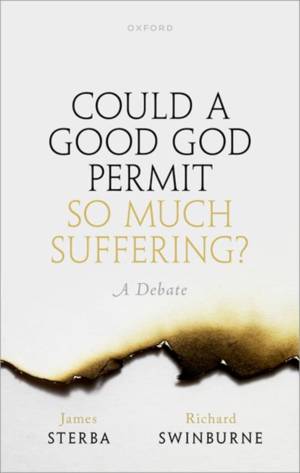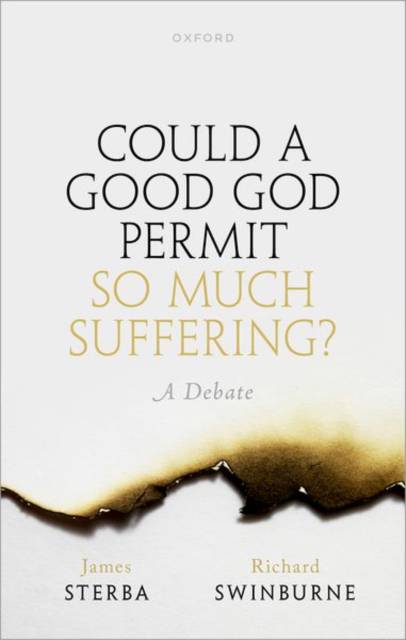
- Afhalen na 1 uur in een winkel met voorraad
- Gratis thuislevering in België vanaf € 30
- Ruim aanbod met 7 miljoen producten
- Afhalen na 1 uur in een winkel met voorraad
- Gratis thuislevering in België vanaf € 30
- Ruim aanbod met 7 miljoen producten
Zoeken
Could a Good God Permit So Much Suffering?
A Debate
James Sterba, Richard Swinburne
Hardcover | Engels
€ 128,95
+ 257 punten
Uitvoering
Omschrijving
Could a Good God Permit So Much Suffering? presents a debate over whether the degree and amount of moral evil that actually exists in our world is logically incompatible with the existence of the all-good, all-powerful God of traditional theism. James Sterba puts the case in favour of this proposition, on the basis that the evils of the world are so horrendous that their occurrence violates principles requiring the prevention of moral evil, conclusively showing the non-existence of an omnipotent and perfectly good God. In reply, Richard Swinburne argues that our major benefactors, parents and the State, have rights to permit us to suffer if doing so is necessary to secure some good for ourselves or others. Therefore, Swinburne claims, as so much greater a benefactor than are parents and the State, it follows that God has a far greater right to allow suffering to a high degree if allowing such suffering is the only logically possible way for God to secure some very great goods for ourselves or others. Further responses from both Sterba and Swinburne continue the debate, ensuring that all lines of argument are thoroughly explored.
Specificaties
Betrokkenen
- Auteur(s):
- Uitgeverij:
Inhoud
- Aantal bladzijden:
- 160
- Taal:
- Engels
Eigenschappen
- Productcode (EAN):
- 9780192848543
- Verschijningsdatum:
- 24/09/2024
- Uitvoering:
- Hardcover
- Formaat:
- Genaaid
- Afmetingen:
- 135 mm x 206 mm
- Gewicht:
- 340 g

Alleen bij Standaard Boekhandel
+ 257 punten op je klantenkaart van Standaard Boekhandel
Beoordelingen
We publiceren alleen reviews die voldoen aan de voorwaarden voor reviews. Bekijk onze voorwaarden voor reviews.











